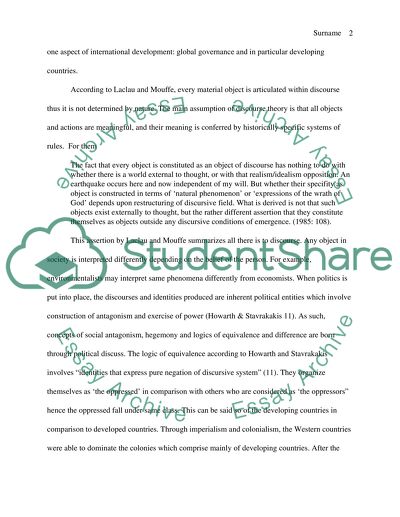Cite this document
(“Using the concept of narrative and discourse, deconstruct one aspect Essay”, n.d.)
Retrieved from https://studentshare.org/social-science/1666330-using-the-concept-of-narrative-and-discourse-deconstruct-one-aspect-of-international-development
Retrieved from https://studentshare.org/social-science/1666330-using-the-concept-of-narrative-and-discourse-deconstruct-one-aspect-of-international-development
(Using the Concept of Narrative and Discourse, Deconstruct One Aspect Essay)
https://studentshare.org/social-science/1666330-using-the-concept-of-narrative-and-discourse-deconstruct-one-aspect-of-international-development.
https://studentshare.org/social-science/1666330-using-the-concept-of-narrative-and-discourse-deconstruct-one-aspect-of-international-development.
“Using the Concept of Narrative and Discourse, Deconstruct One Aspect Essay”, n.d. https://studentshare.org/social-science/1666330-using-the-concept-of-narrative-and-discourse-deconstruct-one-aspect-of-international-development.


